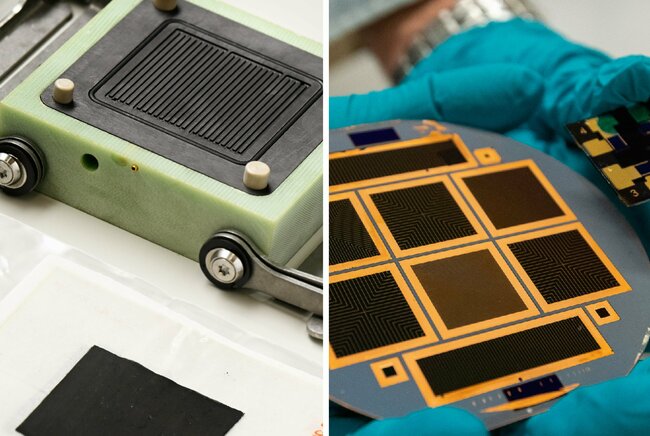Third round National Growth Fund: two projects awarded involving CE&C researchers
A whopping eleven project proposals with a TU/e contribution will receive investment in the third round of the National Growth Fund. In two of them researchers of CE&C are involved.

A whopping eleven project proposals with a TU/e contribution will receive investment in the third round of the National Growth Fund. In two of them researchers of CE&C are involved.
Material Independence & Circular Batteries
Battery technology plays a crucial role in the energy transition as a storage system for green energy. For stabilizing the electricity grid and for the electrification of the mobility sector. The Material Independence & Circular Batteries proposal focuses on realizing a strong position for the Dutch manufacturing industry in the global battery chain, with sustainability and circularity at its core. This is essential to achieve climate goals and sustainable economic success in the Netherlands.
The National Growth Fund is investing up to € 296 million in the project. Of this amount, € 118 million has been conditionally allocated and € 178 million as a reservation.
From our department two researchers are involved. Antoni Forner Cuenca from the research group Electrochemical Materials and Systems will work on the development of electrodes with structured porosity and functionality and Kitty Nijmeijer from the research group Membrane Materials and Processes will work on the development of sustainable membranes to control ionic transport. Both electrodes and membranes are developed for the next generation redox flow batteries for energy storage.
SolarNL: Circular integrated high-efficiency solar panels
Energy from sunlight (solar PV) plays a key role in the transition to renewable energy. Globally, solar PV is growing rapidly and the capacity in the Netherlands is increasing substantially. This proposal focuses on the development and industrialization of new solar PV technologies and provides for the development of the next generation of fully circular solar panels. The next generation of solar panels is fully circular, has very low CO2 emissions, can be integrated into facades or car roofs, for example, and is much more efficient, requiring less space.
The National Growth Fund is investing up to €412 million in the project. Of this amount, €135 million has been granted definitively and €177 million conditionally. In addition, €100 million has been reserved for a possible loan for one of the consortium participants.
From our department René Janssen of the Molecular Materials and Nanosystems group is involved in Program Lines 2 and 3. They will use metal halide-perovskites, to develop a new flexible lightweight solar PV technology with high efficiency, which can be made with very small CO2 footprint and low material consumption. There is a range of activities planned to enhance efficiency by developing new materials and new device layouts, guided by studies on eliminating loss processes.